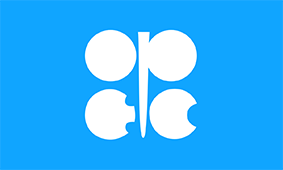
Iranian Minister Content with New OPEC Decisions

Zanganeh said on Tuesday that Iran had approved of extended OPEC cuts of 1.2 million barrels per day until March 2020, a move agreed in a meeting in Vienna a day earlier to further stabilize oil prices and counter a boom caused by surge in US production.
The minister also sounded happy with an OPEC agreement to formalize a charter for cooperation with other oil producers although he insisted that the document had “no impact on the OPEC and its mechanisms for decision taking”.
Zanganeh said that Iran’s reservations about the new charter, which aims to facilitate cooperation with OPEC+, a 24-member grouping led by Russia, were heeded during the Monday meeting.
“I think it was a good meeting and we achieved what we were looking for,” said Zanganeh after the marathon meeting which lasted for five hours.
Iran’s oil ministry also tweeted on Tuesday that Iran had approved of the OPEC supply cuts and the charter for cooperation with OPEC+.
Both the charter and the cuts should be finalized in a meeting later Tuesday between OPEC and OPEC+ representatives.
On Monday, Iranian Ambassador to the UN Agencies Headquartered in Vienna Kazzem Qaribabadi lashed out at Washington for its attempt to wield influence on the Organization for Petroleum Exporter Countries (OPEC) through Saudi Arabia to undermine the role of Iran and Venezuela as the two major members of the oil cartel.
“The US has tried to take coercive and unilateral measures about some OPEC members such as Iran and Venezuela to follow its own interests there,” Qaribabadi said, warning against “foreign powers influence” on the OPEC decision making.
He added that the US, supported by some OPEC members, has been trying to influence the key decisions of the organization.
He was referring to Saudi Arabia and Russia that are dominating the group's decision making
“The US is one of the biggest oil producers in the world and is trying to highlight its own role by undermining Iran and Venezuela’s roles,” Qaribabadi added.
The Iranian official accused OPEC members such as Saudi Arabia and the United Arab Emirates (UAE) for seizing the opportunity of Iran sanctions to take the country’s position as a global oil supplier.
He warned of the danger that OPEC is exposed to due to “external efforts as well as political measures of some countries inside the body”.
“These two threats have been highlighted by the Iranian oil minister. Iran supports an independent, professional and technical OPEC. Iran doesn’t want an OPEC to be under the US influence that takes coercive measures and imposes unilateral sanctions,” according to the Iranian official.
Qaribabadi also warned that without Iran’s backing, none of the OPEC’s decisions have been implemented so far.
“The Iranian oil minister said before the OPEC meeting that his country will not accept any decision that has been taken outside it and imposed on the body,” he stressed.
Early in May, Zanganeh said the OPEC will collapse if member states like Saudi Arabia and the UAE keep practicing one-sided policies against the interests of the organization and other member states, and warned of Tehran's reply to the two OPEC members' companionship with the US sanctions on Iranian crude.
Zangeneh, after a meeting with OPEC Secretary-General Mohammed Barkindo on May 02, warned that Iran will reply in kind if its interests in the OPEC are threatened.
"Iran is part of the OPEC due to its interests and if members of the organization seek to threaten it, Iran will not leave them unanswered," the Iranian oil minister highlighted.
"I told Barkindo that OPEC is threatened by the unilateralism of some of its members and that it's possible that the organization may collapse," said Zangeneh following the meeting.



Trump weighs using $2 billion in CHIPS Act funding for critical minerals

Codelco cuts 2025 copper forecast after El Teniente mine collapse

Electra converts debt, launches $30M raise to jumpstart stalled cobalt refinery

Barrick’s Reko Diq in line for $410M ADB backing

Abcourt readies Sleeping Giant mill to pour first gold since 2014

Nevada army depot to serve as base for first US strategic minerals stockpile

SQM boosts lithium supply plans as prices flick higher

Viridis unveils 200Mt initial reserve for Brazil rare earth project

Tailings could meet much of US critical mineral demand – study

Kyrgyzstan kicks off underground gold mining at Kumtor

Kyrgyzstan kicks off underground gold mining at Kumtor

KoBold Metals granted lithium exploration rights in Congo

Freeport Indonesia to wrap up Gresik plant repairs by early September

Energy Fuels soars on Vulcan Elements partnership

Northern Dynasty sticks to proposal in battle to lift Pebble mine veto

Giustra-backed mining firm teams up with informal miners in Colombia

Critical Metals signs agreement to supply rare earth to US government-funded facility

China extends rare earth controls to imported material

Galan Lithium proceeds with $13M financing for Argentina project

Kyrgyzstan kicks off underground gold mining at Kumtor

Freeport Indonesia to wrap up Gresik plant repairs by early September

Energy Fuels soars on Vulcan Elements partnership

Northern Dynasty sticks to proposal in battle to lift Pebble mine veto

Giustra-backed mining firm teams up with informal miners in Colombia

Critical Metals signs agreement to supply rare earth to US government-funded facility

China extends rare earth controls to imported material

Galan Lithium proceeds with $13M financing for Argentina project

Silver price touches $39 as market weighs rate cut outlook

















